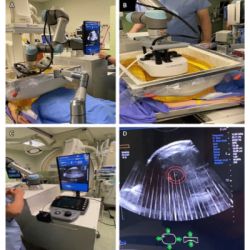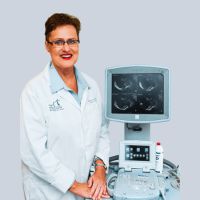Recent developments in the field of medical imaging are poised to significantly impact the approach to patient care, particularly in the timely diagnosis and treatment of stroke. Spearheaded by European researchers, these innovations center around the deployment of portable ultrasound devices, offering a promising enhancement to the diagnostic toolkit.
Urgency in Stroke Diagnosis and Treatment
The type of stroke—whether ischemic or hemorrhagic—dictates the treatment path. This diagnostic challenge is where the emerging ultrasound technology, developed as part of the ResolveStroke project, shows immense potential. Led by Dr. Olivier Couture of the Biomedical Imaging Laboratory in Paris, the project seeks to utilize ultrasound imaging for rapid stroke diagnosis, a crucial factor in improving patient outcomes.
ResolveStroke Project: A Leap Forward in Ultrasound Imaging
The ResolveStroke project, a collaboration involving the French National Center for Scientific Research and Sorbonne University, aims to refine the capabilities of ultrasound imaging. The project's focus on ultrasound localization microscopy to overcome the theoretical limit of ultrasound resolution. This strategy has made possible to map the microcirculation at a scale of one tenth of the wavelength.
This innovation could enable to diagnose strokes more quickly and accurately, potentially even at the pre-hospital stage.
Development and Trials of the Portable Scanner
The transition of this technology from animal models to human application marks a significant advancement. The scanner, having progressed from initial tests on rats to approval for human trials, is set for trials at the Bichat-Claude Bernard Hospital. This development could be a game-changer, particularly in reducing the time to treatment for stroke patients. The researchers have set up a company, also called ResolveStroke, to push forward commercialization. They hope to have European approval for the scanner by 2025.
LucidWave Project: Expanding Ultrasound Applications
Concurrent with the ResolveStroke initiative, the LucidWave project in Belgium is working to broaden the application of ultrasound imaging. This project aims to develop a handheld, wireless ultrasound probe, leveraging micro-electromechanical systems (MEMS) technology for enhanced versatility and user-friendliness. The potential applications of this technology are vast, spanning from maternity care to sports medicine.
Implications for Future Medical Practice
These advancements signal a significant shift in medical imaging, potentially positioning advanced ultrasound technology as a fundamental tool in the diagnostic arsenal. As we anticipate these technologies' integration into clinical practice, they promise not only to enhance diagnostic capabilities but also to streamline patient care, reduce healthcare costs, and improve patient outcomes.
These innovations in ultrasound technology represent a pivotal moment in medical imaging, with direct implications for stroke treatment and beyond. They hold the promise of transforming the approach to patient care, mirroring the historical impact of the stethoscope in clinical practice. As these projects progress, we can look forward to a future where rapid and efficient medical imaging is an integral part of patient management across various medical disciplines.
Source: Hozizon: The EU Research & Innovation Magazine


























